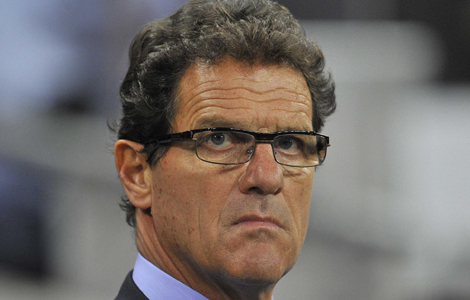EU 'will solve its debt crisis'
Updated: 2012-02-13 08:03
By Fu Jing (China Daily)
|
|||||||||||
On the eve of Sino-EU leaders summit scheduled on Tuesday, President of the European Council Herman Van Rompuy accepted a written interview from Fu Jing, chief correspondent of China Daily in Brussels. The following is the full script of the interview.
Question: What are your hopes for the 14th EU-China summit?
Answer: When I met President Hu Jintao and Premier Wen Jiabao in China last May, we decided to bring our relations to a higher level and to look for mutually advantageous deliverables in new areas of cooperation. We agreed to achieve a successful 14th summit to deepen and widen the strategic and comprehensive partnership between the EU and China.
Since then we have been working with great determination to achieve this common objective. I am very confident in a positive and forward looking result.
Q: What will be the main achievements of this meeting?
A: The agenda for our summit talks is wide and comprehensive: bilateral cooperation (based on more than 50 bilateral sectoral dialogues), global issues, and foreign and security aspects. We expect good discussions throughout the whole agenda with much concrete progress.
For example on the bilateral cooperation we identified two main areas where we can make our partnership stronger.
First, we will launch a brand new "High-level People-to-People Dialogue" aimed at improving the interaction between our citizens. With EU and China having almost 1.8 billion human beings we expect this dialogue to have a real added value. It will add another "pillar" to our architecture next to economy and security
We will also launch a partnership on "sustainable urbanisation". Urbanisation is a long-term process in China presenting both challenges and opportunities. Last year China reached the symbolic point where its urban population exceeds the rural one for the first time. Our common objective will be to share and develop expertise in addressing this enormous challenge through an efficient use of resources and the protection of the environment, while still ensuring economic growth.
The summit gives us an opportunity to have an honest discussion also on questions where our views may differ. We will insist with the Chinese leadership on better addressing economic issues, such as protectionism, and the protection of investments and intellectual property, and we will stress the importance of creating a level playing field for European players. We will also politely but clearly highlight the concerns our Member States and our societies harbour over some aspects of human rights in China.
Looking at our global agenda we will discuss how to achieve progress on key G20 issues. The contributions of Europe and China are essential to make economic growth sustainable, to reform the international monetary system, and to combat protectionism. Implementation of the decisions taken at the G20 summit in Cannes will be crucial [especially on the contribution to the IMF] ahead of the summit in Mexico. Stronger cooperation on climate change will also be key to ensure a complete and timely follow up of the positive outcome in Durban.
Third, we will look at global and regional issues of peace and stability, as well as promoting political stability and economic growth in parts of the world where they are at risk. Beyond discussing the developments in the EU's Southern Neighbourhood, we will touch upon the regional stability and security questions of East Asia as well. We will also address the nuclear programme of Iran, and I will ask the Chinese leadership to use its considerable leverage to convince Iran to give up its controversial nuclear programme and return to the negotiating table.
Q: What do you see as the key features of EU-China Relations?
A: China makes an immense contribution to the world's sustainable growth. For example, it has lifted hundreds of millions of its people out of poverty. And its economy is progressing steadily. Europe - the world's largest market - produces 20 percent of the world's GDP. So, the EU and China are two pillars in today's world economy and key players in addressing global challenges. We both aim at preserving peace and stability. We are both attached to a multi-polar world and the concept of multilateralism. . Both of us have to adapt quickly to rapid changes in an increasingly interdependent world. We share a common set of challenges.
The importance of our relationship is also reflected in public perceptions. European public opinion increasingly focuses on China’s successful economic development. At the same time it increasingly expects from China a greater role in contributing to the stability of today's world. Safeguarding human rights and the rule of law are part of this responsibility. China and the EU have both signed international instruments which enshrine the universal values of human rights, and we have a shared responsibility to uphold them. These are core values for the EU, and China's public perception in European countries is closely linked with its respect of these values.
Q: Can China "save" the euro area from the debt crisis?
A: The debt crisis in the euro zone is being solved by the euro area and its members. Far reaching measures have been taken to restore confidence and growth, through financial firewalls, strict fiscal policies and structural reforms. The euro is a part of the DNA of Europe, a common currency at the heart of the daily life of more than 300 million citizens. All European leaders are determined to do whatever needs to overcome the crisis.
Of course, we appreciate the confidence China has always demonstrated towards Europe and the euro. The euro is the world's second reserve currency and therefore, there is no doubt that the stability of the euro area is important for the world economy.
Q: Both Chinese and EU leaders have expressed a desire to deepen the third pillar of their cooperation - people-to-people contacts. How do you propose to do this?
A: The idea of a “people to people dialogue” came from a clearly perceived need to match the increasing demand for contact between Chinese and European people, especially the younger generation. Young Chinese want to study in Europe, the same applies to their European friends who want to graduate in Chinese schools and universities. They want to learn more about each other, understand each others' cultures and languages, or just experience China and Europe through travel. We want thereby to promote greater understanding and human bonds, particularly between future generations.
Q: Trade is one of the main pillars of EU-China relations but is often also one with most friction. What can the EU and China do to improve this situation?
A: In 1978 EU and China trade was almost non-existent. Today its value is over 1 billion euro every day. Europe is China's biggest export market and China is Europe's fastest growing partner. With fast developing trade it is only natural that there are sometimes disagreements. Chinese and European businesses must be able to compete on a level playing field, both when they are active in China as well as when they are active in the EU. Therefore, the important thing is for both China and the EU to continue to promote open markets, to avoid protectionism and to ease regulation that effectively hampers trade and investment. This will help to diffuse disagreements and contribute to the continuing growth of trade flows, which is particularly important in the current economic climate... Moreover, both China and the EU are committed to the WTO system, which provides efficient tools to handle divergent views.
There is vast untapped potential for more investments in both directions. This is why we will discuss the best way to promote investment and open markets at the summit.
Q: In what areas are the EU and China cooperating on the world stage?
A: The EU and China work together on bilateral, regional and global levels. In the G20, on financial and economic matters; in the UN, on regional conflicts; in the WTO, on trade issues; while we also cooperate in other areas, such as Iran and the Horn of Africa.
We should also not forget that the European Union is the largest trade partner of many countries in Asia. Of course the EU is not geographically situated the region, but our intensive trade and cooperation makes the EU a "virtual" player there. The achievements of the European architecture in trade, integration, but also in security and stability serve as sources of inspiration for newly emerging regional frameworks and dialogues in Asia. We would also like to increase our political connectivity in this part of the world. This is why regional cooperation, integration and stability in East Asia feature on the summit agenda.
Q: China and the EU are said to have a strategic partnership. What do you understand by this?
A: A strategic partnership entails shared responsibility for the common good, international cooperation based on trust and openness. It also implies the willingness to shape a common future.
A strategic interdependence exists when both sides believe that they cannot reach their objectives without the support of the other. For example, as China's biggest export market Europe has helped Chinese economic growth. On the other hand, China is our fastest growing market and an important force in stabilizing the euro. Chinese investment in Europe is also growing.
Q: Last year was the EU-China Year of Youth and this year will be the EU-China Year of Intercultural Dialogue. Do you have any message for the young people of China?
A: China's future belongs to its youth. They will inherit both its challenges and opportunities. How they rise to these challenges and opportunities will ultimately change the destiny not only of China, but also of the rest of the world. We shall encourage our young people to engage actively in the Year of Intercultural Dialogue, so that they will get to know each other and to create an even better basis for future cooperation.
My generation has helped to create and develop a true partnership between Europe and China; my hope is that the next generation will consider this partnership something integral to their lives.
Hot Topics
Kim Jong-il, Mengniu, train crash probe, Vaclav Havel, New Year, coast guard death, Internet security, Mekong River, Strait of Hormuz, economic work conference
Editor's Picks

|
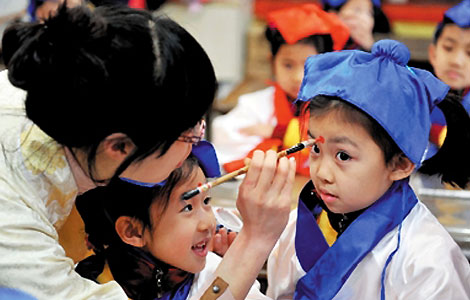
|
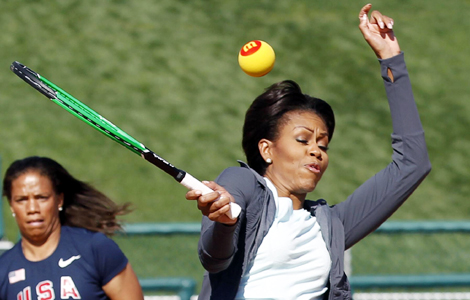
|

|
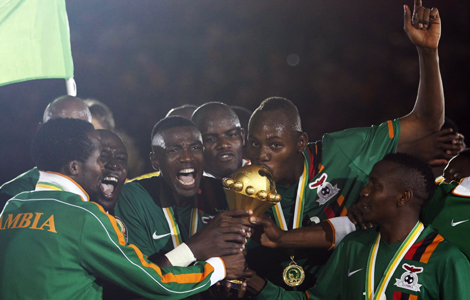
|
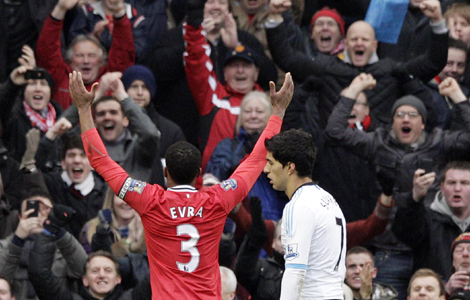
|


